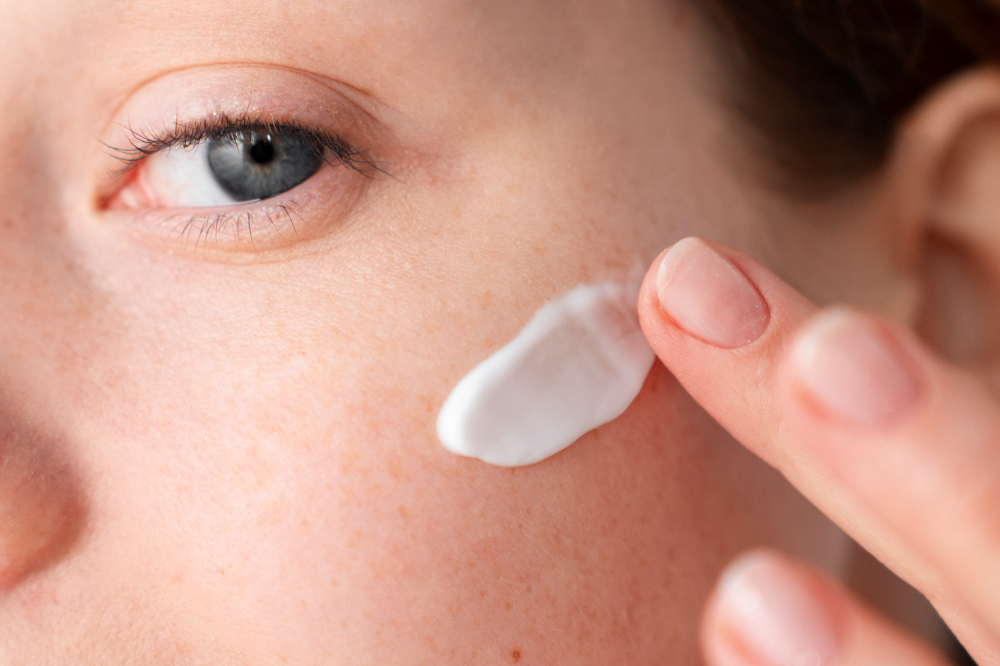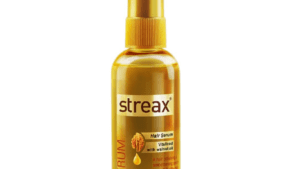Introduction
Retinol cream has become a staple in skincare routines worldwide, and for good reason. This powerhouse ingredient is renowned for its ability to combat signs of aging, treat acne, and improve overall skin health. But with so much information out there, it can be overwhelming to know where to start. This comprehensive guide aims to demystify retinol cream, covering everything from its benefits and usage to potential side effects and tips for choosing the right product.
What is Retinol?
Definition and Origins
Retinol, a derivative of Vitamin A, has been a skincare hero for decades. Originally used in the treatment of acne, it was discovered to have powerful anti-aging properties. This compound belongs to a larger family of compounds known as retinoids, which includes both over-the-counter retinol and prescription-strength variants.
Chemical Composition
Chemically speaking, retinol is an alcohol form of Vitamin A. It works by converting into retinoic acid once applied to the skin, which then interacts with skin cells to promote cell turnover and collagen production.
How Retinol Works
Mechanism of Action
Retinol’s magic lies in its ability to accelerate cell turnover. By speeding up the skin’s renewal process, it helps shed dead skin cells and encourages the growth of new, healthy ones. This process not only helps to smooth out fine lines and wrinkles but also unclogs pores, making it an effective treatment for acne.
Cellular Turnover and Collagen Production
One of the standout benefits of retinol is its ability to stimulate collagen production. Collagen is a crucial protein that keeps our skin firm and elastic. As we age, collagen production slows down, leading to sagging skin and wrinkles. Retinol helps to counteract this by boosting collagen synthesis, resulting in firmer, more youthful-looking skin.
Benefits of Retinol Cream
Anti-Aging Properties
Retinol is often hailed as the gold standard in anti-aging skincare. Its ability to smooth out fine lines, reduce wrinkles, and firm up the skin makes it a favorite among those looking to maintain a youthful appearance.
Acne Treatment
Retinol’s benefits extend beyond anti-aging. Its exfoliating properties help to keep pores clear, reducing the likelihood of breakouts. This makes it a popular choice for those struggling with acne.
Even Skin Tone
If you’re dealing with hyperpigmentation or dark spots, retinol can help. By promoting cell turnover, retinol helps to fade dark spots and even out skin tone over time.
Reduction of Dark Spots
Age spots and sun spots can make skin look older than it is. Retinol works to lighten these spots, giving the skin a more even and youthful appearance.
Improved Skin Texture
Rough, uneven skin texture can be a thing of the past with regular use of retinol. Its exfoliating properties help to smooth out the skin, leaving it feeling soft and looking radiant.
Types of Retinol Products
Over-the-Counter Retinol
OTC retinol products are available in various strengths and formulations, making them accessible to a wide range of users. These products are a great starting point for those new to retinol.
Prescription Retinoids
For more severe skin concerns, prescription-strength retinoids like tretinoin may be recommended by a dermatologist. These products are more potent and can deliver faster results, but they also come with a higher risk of side effects.
Differentiating Between Types
Understanding the difference between OTC retinol and prescription retinoids is crucial for choosing the right product for your needs. OTC retinol is gentler and suitable for most skin types, while prescription retinoids are best for those with severe skin issues or who have built up a tolerance to milder forms.
Choosing the Right Retinol Cream
Skin Type Considerations
When selecting a retinol cream, it’s essential to consider your skin type. Those with sensitive skin should opt for lower concentrations, while those with more resilient skin can handle higher strengths.
Concentration Levels
Retinol creams come in various concentrations, typically ranging from 0.25% to 1%. Beginners should start with a lower concentration and gradually increase as their skin builds tolerance.
Additional Ingredients
Many retinol creams are formulated with additional ingredients like hyaluronic acid, niacinamide, or peptides to enhance their benefits and reduce potential irritation. Look for products that address your specific skin concerns.
How to Use Retinol Cream
Application Tips
To get the most out of your retinol cream, apply it to clean, dry skin. A pea-sized amount is usually sufficient for the entire face. Avoid the eye area unless the product is specifically formulated for that delicate skin.
Best Time to Apply
Retinol is best applied at night, as it can make your skin more sensitive to sunlight. This nighttime application allows the product to work while you sleep, promoting cell turnover and collagen production.
Frequency of Use
Start by using retinol once or twice a week and gradually increase the frequency as your skin adjusts. Overuse can lead to irritation, so it’s crucial to listen to your skin and adjust accordingly.
Potential Side Effects
Common Side Effects
While retinol is highly effective, it can also cause side effects, especially during the initial stages of use. Common issues include redness, dryness, and peeling.
Minimizing Irritation
To minimize irritation, start with a lower concentration and gradually increase it. Using a moisturizer alongside retinol can also help to alleviate dryness and peeling.
When to Consult a Dermatologist
If you experience severe irritation or if your skin doesn’t seem to adapt to retinol, it’s best to consult a dermatologist. They can recommend suitable alternatives or prescribe a different formulation.
Incorporating Retinol into Your Skincare Routine
Step-by-Step Guide
- Cleanse: Start with a gentle cleanser to remove makeup and impurities.
- Apply Retinol: Use a pea-sized amount of retinol cream, avoiding the eye area.
- Moisturize: Follow up with a hydrating moisturizer to lock in moisture and reduce irritation.
- Sunscreen: In the morning, always apply sunscreen with at least SPF 30 to protect your skin.
Combining with Other Products
Retinol can be used alongside other skincare products, but it’s essential to avoid combining it with ingredients like benzoyl peroxide or exfoliating acids, as this can increase the risk of irritation.
Retinol and Sunscreen
Using sunscreen is non-negotiable when using retinol. Retinol can make your skin more sensitive to the sun, increasing the risk of sunburn and damage. Always apply a broad-spectrum sunscreen every morning.
Retinol Myths and Facts
Debunking Common Myths
There are many myths surrounding retinol, such as the idea that it thins the skin or that it shouldn’t be used during the summer. These myths can be misleading and prevent people from reaping the benefits of retinol.
Understanding the Science
Retinol has been extensively studied, and the science supports its efficacy in treating a variety of skin concerns. By understanding the science, you can make informed decisions about incorporating retinol into your routine.
Retinol Cream for Different Skin Concerns
Retinol for Sensitive Skin
For those with sensitive skin, it’s crucial to start with a low concentration and gradually increase as your skin builds tolerance. Look for formulations that include soothing ingredients like aloe vera or chamomile.
Retinol for Oily Skin
Retinol can be beneficial for oily skin, as it helps to regulate sebum production and keep pores clear. Choose a lightweight, non-comedogenic formula to avoid clogging pores.
Retinol for Dry Skin
If you have dry skin, opt for retinol creams that include hydrating ingredients like hyaluronic acid or ceramides. These will help to counteract the drying effects of retinol.
Popular Retinol Cream Brands
Drugstore Brands
Brands like Olay, Neutrogena, and RoC offer affordable retinol creams that are widely available and effective for various skin concerns.
High-End Brands
For those looking to invest in their skincare, high-end brands like Drunk Elephant, Sunday Riley, and Skinceuticals offer potent retinol formulations with luxurious textures and additional beneficial ingredients.
Dermatologist-Recommended Brands
Brands like La Roche-Posay, Differin, and Retin-A are often recommended by dermatologists for their proven efficacy and clinical backing.
DIY Retinol Cream Recipes
Safe Home Recipes
For those interested in a DIY approach, there are safe ways to incorporate retinol into homemade skincare. However, it’s crucial to ensure that the ingredients are properly sourced and that the formulations are safe.
Benefits and Drawbacks
While DIY retinol creams can be cost-effective and customizable, they often lack the stability and efficacy of professionally formulated products. Proceed with caution and prioritize safety.
Frequently Asked Questions
How long does it take to see results?
Results can vary, but most people begin to see improvements in their skin within 4 to 6 weeks of regular use. For significant changes, it may take up to 3 months.
Can I use retinol cream every day?
It’s best to start slowly, using retinol once or twice a week, and gradually increase the frequency. Some people can tolerate daily use, while others may need to stick to a less frequent schedule.
Is retinol safe during pregnancy?
Retinol is generally not recommended during pregnancy due to potential risks to the developing fetus. Always consult with a healthcare provider before using retinol if you are pregnant or planning to become pregnant.
What is the difference between retinol and retinoid?
Retinoids are a broader category that includes retinol and other Vitamin A derivatives like tretinoin. Retinol is an over-the-counter form, while retinoids often refer to prescription-strength products.
Can I use retinol cream with other active ingredients?
Retinol can be used with other active ingredients, but it’s essential to avoid potentially irritating combinations. Ingredients like hyaluronic acid, niacinamide, and peptides are generally safe to use with retinol.
Conclusion
Retinol cream is a versatile and powerful addition to any skincare routine. Whether you’re looking to combat signs of aging, treat acne, or improve overall skin texture, retinol offers numerous benefits. By understanding how to choose and use retinol products effectively, you can achieve healthier, more radiant skin. Don’t let myths and misconceptions hold you back—embrace the science-backed benefits of retinol and see the difference for yourself.




